MODERN FOREIGN LANGUAGESModern Foreign Languages – Curriculum Statement
“The limits of my language are the limits of my world” Ludwig Wittgenstein (philosopher) Curriculum Intent The intention of the French curriculum at Dartmoor Multi Academy Trust, above everything, is to ensure children develop a love of learning languages. Pupils learn high-frequency structures that can be manipulated to talk about themselves and others, as well as use the language for practical purposes. Phonics are taught explicitly and are carefully sequenced and revisited which in time, leads to pupils having the confidence to read out loud independently in French. Our curriculum extends pupils’ cultural capital and deepens pupils’ understanding of the world. Pupils learn about France and the Francophone world and its customs, traditions, and history as well as traditional songs and stories. Pupils acquire a range of strategies for language learning, such as language detective skills for unfamiliar language and how to learn language off by heart. We do not know which languages our pupils may need in the future, but we understand the skills they will need to approach language learning in later life. Implementation Pupils receive 30-45 minutes of French a week. This comprises of one discreet lesson, as well as short follow up activities throughout the week to consolidate learning. Our approach ensures pupils are confident language learners. New language is carefully scaffolded, and support is only removed once language is acquired to ensure high success rates. Activities and resources are adapted and developed so that all pupils, including those with SEND, can feel a sense of achievement. Language is structured to enable pupils to revisit vocabulary, grammar, and phonics in different contexts. Over time, following extensive practice, pupils use language spontaneously. Language is introduced through knowledge organisers; ensuring pupils can communicate accurately in full sentences. Once pupils have leant these sentences off by heart, they examine the grammar. Understanding how languages are structured empowers pupils to learn new languages in the future, as well as enabling pupils to manipulate language to create their own sentences in French. New language is modelled through listening activities. Pupils then undertake a variety of reading tasks before moving onto speaking and writing tasks. Teachers prioritise activities that lead to pupils using language spontaneously; pupils practise recognising and responding to language at speed. Impact As a result of our curriculum, we have a community of enthusiastic, tolerant, and curious linguists who enjoy showcasing their developing knowledge and skills. Pupils communicate in French with each other and their teacher within and outside of dedicated French lessons, such as the register routine, and basic classroom instructions. Pupils understand that every language has a structure and appreciate the differences and similarities with English. Pupils are well prepared for language learning in later life as well as KS3, whether that be French or another language. French Curriculum Progression We have a rolling Yr3/4 and 5/6 programme: Topics: 2021-22 animals / 2022-23 school / 2023-24 food / 2024-25 body and health. Each term we will learn a traditional French rhyme or song which will build confidence with French phonics.
|
QUICK LINKS
CURRICULUM OVERVIEW |
MODERN FOREIGN LANGUAGES CURRICULUM



